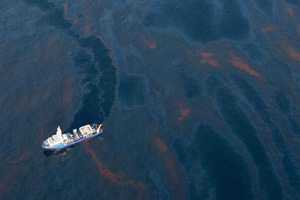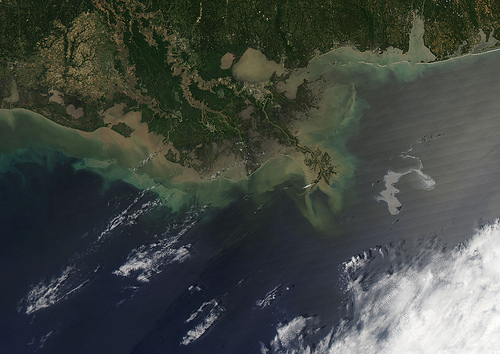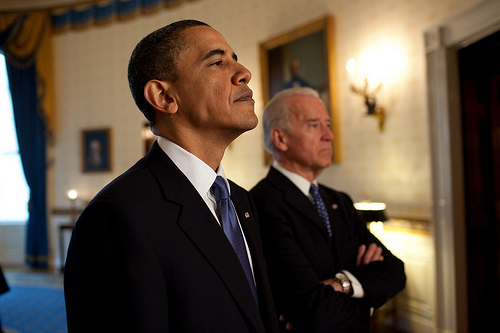More than 70 state-based and national environmental groups called on the Senate Monday to keep any expansion of offshore oil and gas drilling out of energy and climate legislation. In light of the unfolding environmental catastrophe in the Gulf of Mexico, the groups write, more drilling “should be off the table”:
Expanding exploration and drilling into previously protected and remote areas is unacceptable when it is clear that we are not capable of responding to oil spills in a timely manner. The Senate faces a choice between leading America forward in a new clean energy economy or holding America back by preserving the failed energy policies of the past.
The letter—signed by the Sierra Club, Natural Resources Defense Council, League of Conservation Voters, Friends of the Earth, and Environment America, among others—marks a shift in the stance of some green groups, which were initially willing to accept limited drilling as part of a broader climate and energy legislation. Language in the bill (a draft of which was supposed to be introduced last week before it got caught up in political wrangling) concerning drilling was a contentious issue even before the scale of the Gulf disaster became clear. But the spill has prompted even more outrage among environmentalits, pushing groups that were orginally open to drilling concessions to outight opposition.
Notably absent from the letter were several major enviro groups, including the Environmental Defense Fund and the National Wildlife Federation. EDF spokesman Tony Kreindler said the group is focusing on how to handle the immeadiate crisis at hand in the Gulf. The group is calling for “full scale intervention and emergency response, funding to restore wetlands, funding for fisherman and livelihoods, and passage of the clean energy and climate bill so we can start to get ourselves off oil.”
Joe Mendelson, director of global warming policy at the National Wildlife Federation, warned not to read to much into the fact that his group didn’t sign on in support. “I wouldn’t take our absence as a lack of comprehension or sympathy with that position,” he said. “We don’t know where the bill is at this point,” he continued, noting that it’s likely that the provisions that deal with offshore drilling and leasing “probably have to change to reflect the situation now.”
With the spill still getting worse, the politics of drilling and how they will play into the Senate climate debate will only get more interesting in the coming weeks.














